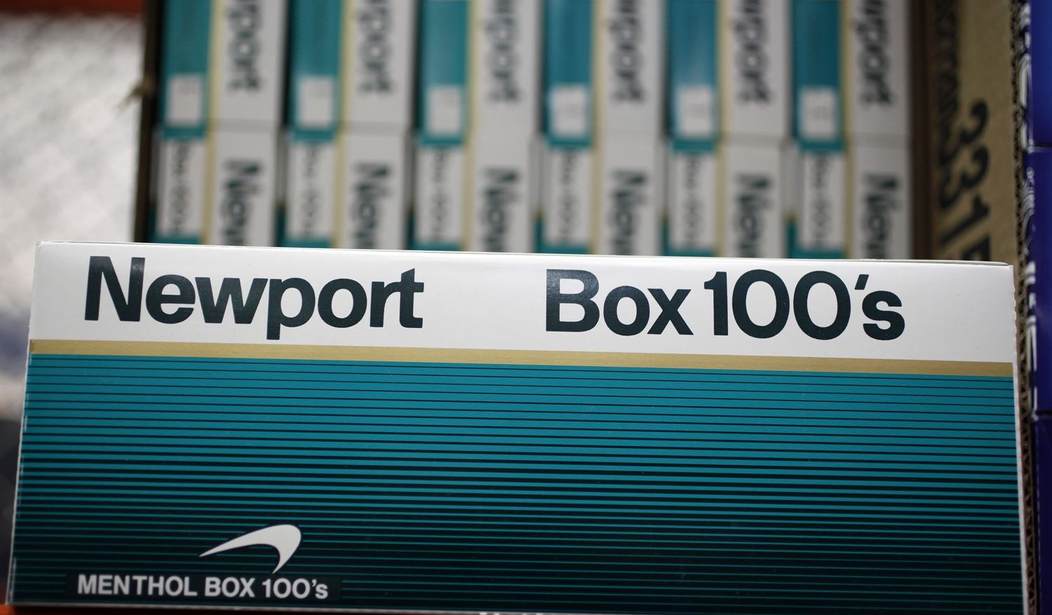Today is the deadline for the FDA to respond to a citizen’s petition submitted almost a decade ago regarding menthol in cigarettes. It has been requested that the agency ban the addition of menthol, which is a rather curiously specific change to make, to begin with. But the rationale for the request is apparently based on racial injustice. The claim being made is that the harmful effects of menthol are disproportionately hitting Black smokers, so the change is required for social justice reasons rather than simple health and safety precautions. If you’re scratching your head over that one, you’re not alone. (NBC News)
The Food and Drug Administration appears likely to move to ban menthol in cigarettes this week — a step, experts say, that has been years in the making and that could have a significant positive impact on the health of Black Americans, NBC News reports.
The FDA’s decision would not ban menthol immediately, but rather kick off the rule-making process to do so, which could take years.
The FDA faces a Thursday court-ordered deadline to respond to a 2013 citizen petition urging it to ban menthol as a flavor in cigarettes.
Most observers seem to believe that the FDA will move ahead with the ban. That was being reported back in 2018, though a final decision wasn’t rendered at the time. The actual battle dates back much further, with government debates on the topic taking place as early as 2010.
So are menthol cigarettes actually more dangerous in terms of health risks than regular tobacco products? The science on that question is a little fuzzy. Menthol itself is considered toxic when ingested in concentrated doses, leading to the possibility of seizures, coma, or even death. But the amount you ingest with a menthol cigarette is reportedly far below those levels. The primary concern being raised is that menthol has a cooling and anesthetic effect, making the tobacco smoking experience less harsh. That can lead menthol smokers to inhale more deeply and smoke more often than others, leading to an increase in the already known dangers of tobacco itself.
But what about the racial component here? It turns out that the idea of Black smokers puffing on menthol brands isn’t just a stereotype. Multiple studies have shown that 80 percent of African American smokers prefer menthol cigarettes versus 30 percent of white smokers. I personally know some white people who smoke menthols so I suppose I never considered it in that light, but it seems to be true.
The problem with this sort of targeted ban is that it primarily appears to be a half measure. If the FDA is admitting that smoking is dangerous enough to warrant federal intervention, why would they openly endorse an idea clearly designed to primarily benefit one race over the others? Why not just ban tobacco entirely?
There are a couple of reasons, actually, and none of them paint the FDA in a particularly flattering light. First of all, tobacco is still a very big business in the United States and it generates a ton of revenue for the government through massive sin taxes that are imposed on its sale. Lobbyists for the tobacco industry also still retain a lot of pull. But money isn’t the only factor in this. If you outlaw tobacco, you immediately create a similar situation as we’ve experienced for generations with marijuana. Black market sales of cigarettes or loose tobacco will crop up immediately. And then somebody is going to have to enforce those laws, locking up people running tobacco supply lines. It would be a mess.
A better idea is to simply continue public education efforts regarding the dangers of smoking. Smoking rates in this country have plummeted over the past few decades, though the habit never seems to go away entirely. And enacting a ban that only affects menthol-flavored products isn’t going to accomplish much of anything as far as I can see. People with a bad nicotine addiction will just switch over to regular brands, even if they don’t enjoy them as much.








